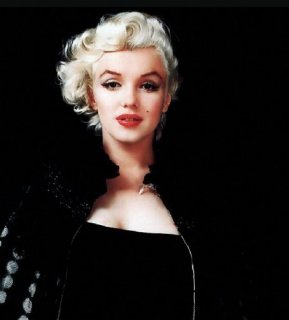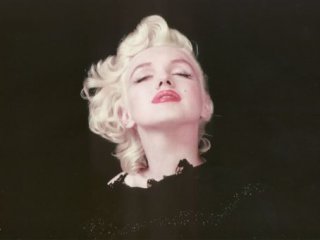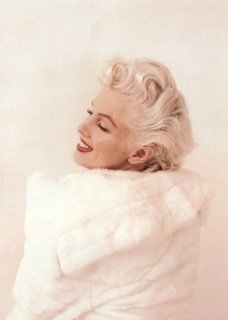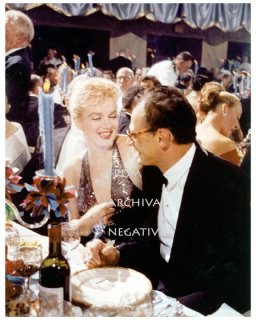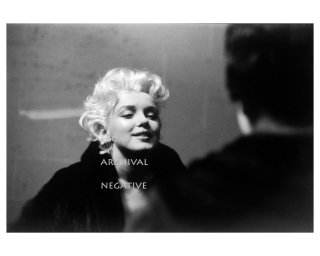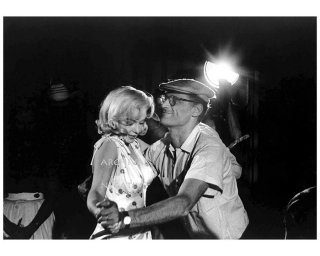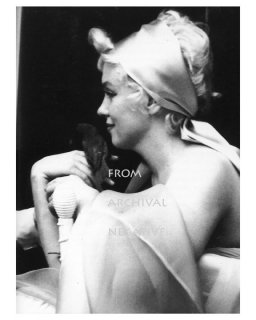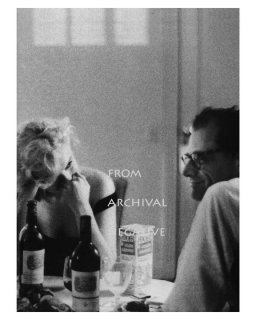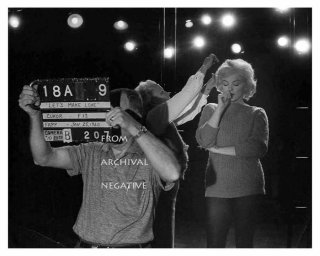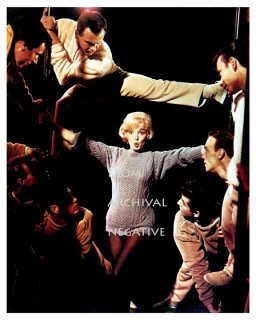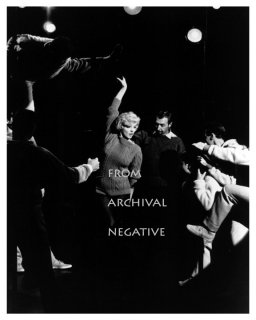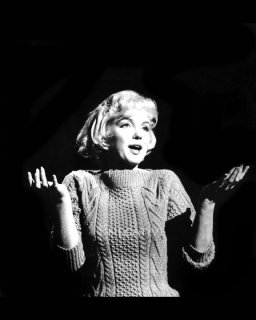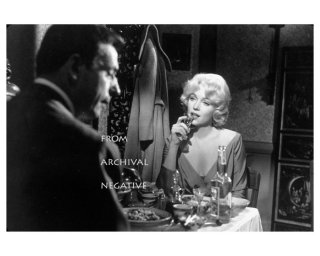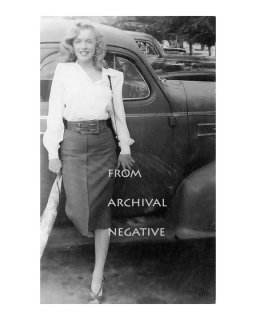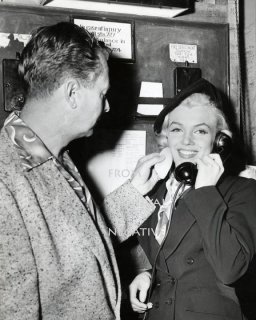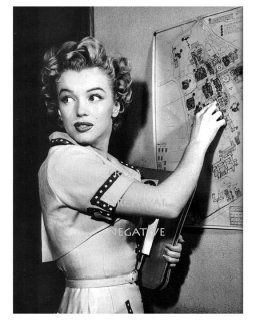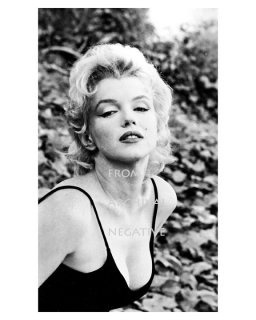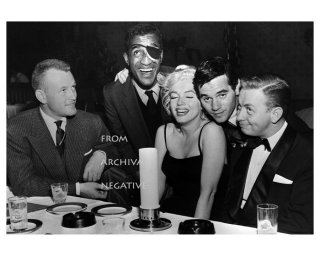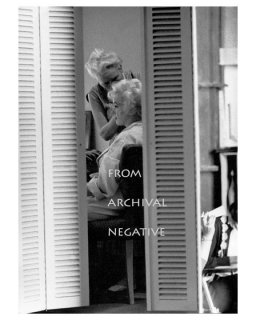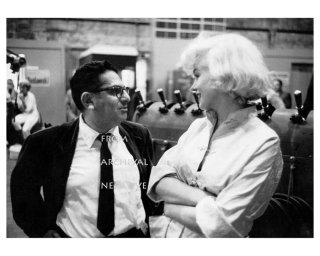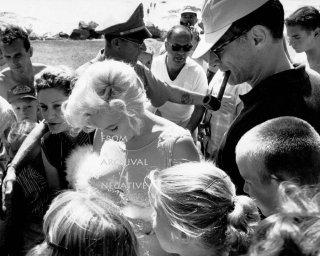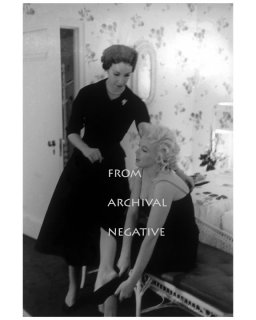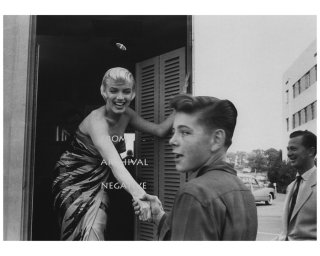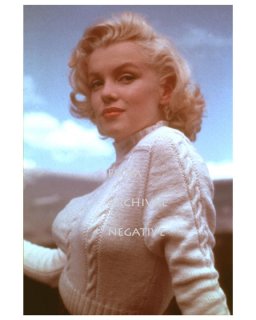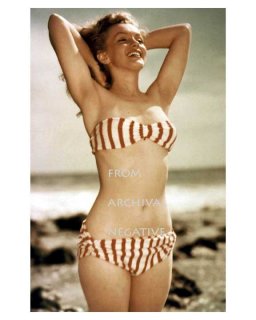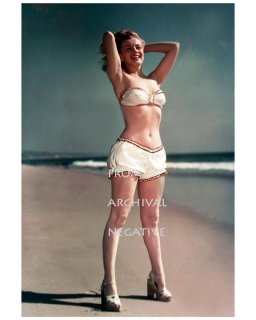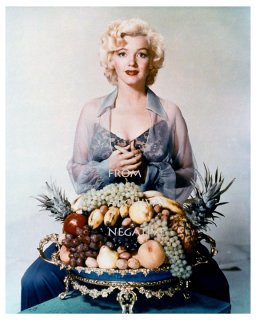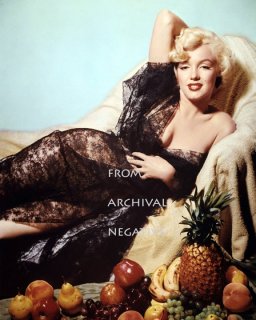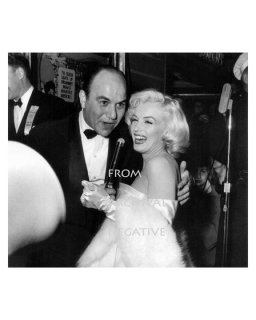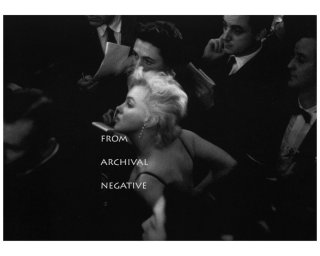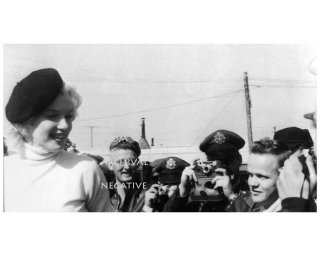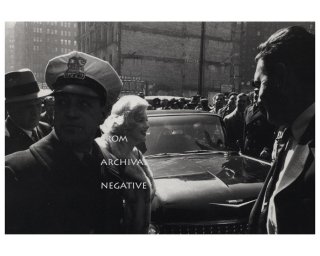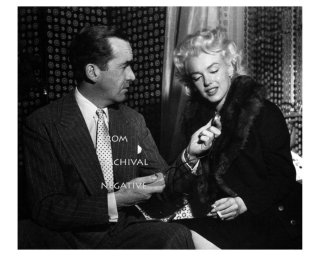Joe DiMaggio wanted Marilyn Monroe to be his demure housewife so when she posed for t
Dailymail.co.uk.
Marilyn Monroe had money, fame and critical acclaim, but what she wanted most was a man to love her. The men she loved - and who loved her back - were Joe DiMaggio, Arthur Miller and Frank Sinatra. But all three were troubled relationships. In our final extract from a definitive new biography, we reveal the blazing rows, the miscarriages and the morning she seduced Sinatra...
Baseball player Joe DiMaggio saw some publicity shots of Marilyn Monroe in March 1952 and decided to ask her for a date. Although she was a dazzlingly beautiful movie star, he was at that time by far the bigger celebrity.
His brilliance with a baseball bat for the New York Yankees made him one of America's most revered heroes. He had retired from baseball just a few months before, aged only 36, because of injuries - but the public adored him still as a sporting legend.
The date was set for March 8, at Villa Nova, an Italian restaurant which is now The Rainbow Bar And Grill on Sunset Boulevard. Marilyn, who wasn't sure she was much interested in a baseball player, was late by two hours.
But he impressed her. Despite his quiet, almost sullen demeanour, he still managed to command the whole room. He wasn't goodlooking: his face was all sharp angles, with teeth not only bucked but haphazardly arranged, and eyes too close together.
He was lanky and spindly. He didn't walk, he lumbered. But power seemed to emanate from him. After dinner, they drove around Beverly Hills for three hours, fascinated by each other.
During the summer of 1952, Marilyn and DiMaggio began to date more regularly. But red flags were raised by her concerned friends. He didn't like her career, he thought women should be firmly in the home, he was jealous of the attention she generated from other men.
In July, Joe took her home to San Francisco to meet his family. Once there, she clearly saw why Joe wanted his wife to be domestic - women raised children, cooked and cleaned, and it had always been that way in the DiMaggio family.
The eighth of nine children of Sicilian immigrants, Joe was raised with strict Catholic values in a household that stressed a strong work ethic and, above all, pride in their Sicilian heritage.
At the end of summer, Joe dropped a real bombshell: he thought it would be best if Marilyn abandoned her acting. It only caused her stress, he argued, so why do it?
'Joe was sick and tired of Marilyn's career,' said Stacy Edwards, who was a sportswriter at the time in Philadelphia and knew DiMaggio well. 'He said he wanted to get her out of the movies. "We'll buy a nice home in San Francisco and just live a simpler life," he told me.
'I knew Joe and I knew what he was about deep down, and it wasn't just Marilyn's career. The attention she got, he was used to getting. When he walked into a room with her, he disappeared. He wasn't used to that at all. He was used to being centre of attention. But with Marilyn, no man could ever be centre of attention. Joe couldn't accept that.'
Then, on New Year's Eve 1953, Joe asked her to marry him. Carried away by the moment, Marilyn said yes. On January 14, 1954, they were married in a quick civil ceremony in San Francisco.
She made a strange request though. If she died before him, would he promise to place flowers at her grave every week? He promised - and years later would fulfil this bleak pledge.
Even with his ring on her finger, DiMaggio could not reconcile himself to Monroe's stardom. He turned to his friend Norman Brokaw, a Hollywood agent, for advice. 'I want her to quit,' he told him, 'but she won't do it.'
Norman mulled over his friend's problem for a moment and said: 'Joe, let me explain something to you, as an agent in this town. There's no actress in this business who is going to give up Clark Gable or Tyrone Power or Spencer Tracy for any man.
'In fact, I don't know any actress who'd be willing to give up her career when she's on her way to the top, any more than you'd have given up your baseball career before its time. So you have to get used to it. Or, honest to God, you're going to lose her.'
Not long after this meeting with Norman, Joe wrote in his personal journal about Marilyn: 'No jealousy . . . Don't forget how lonesome and unhappy you are - especially without her.'
But the jealousy wasn't the only problem. 'He was smacking her around,' said one of his closest friends. 'He didn't seem too ashamed of it, either. He said that she brought the worst out in him, that he wasn't usually that kind of man. He said she was spoiled and very self-centred and it drove him crazy.'
The final straw for Marilyn came when Joe beat her up in their hotel after he became incensed at the sexy, skirt-flying shoot for The Seven Year Itch.
Five thousand onlookers watched the filming of that shot, at one in the morning, with Marilyn standing over a subway grate, her accordion-pleated skirt flying. Unfortunately, DiMaggio was one of them.
Director Billy Wilder described the expression on DiMaggio's face as 'the look of death'. Even though Marilyn wore two pairs of pants for modesty, under the powerful Klieg lights the material became quite see-through.
Dailymail.co.uk.
Marilyn Monroe had money, fame and critical acclaim, but what she wanted most was a man to love her. The men she loved - and who loved her back - were Joe DiMaggio, Arthur Miller and Frank Sinatra. But all three were troubled relationships. In our final extract from a definitive new biography, we reveal the blazing rows, the miscarriages and the morning she seduced Sinatra...
Baseball player Joe DiMaggio saw some publicity shots of Marilyn Monroe in March 1952 and decided to ask her for a date. Although she was a dazzlingly beautiful movie star, he was at that time by far the bigger celebrity.
His brilliance with a baseball bat for the New York Yankees made him one of America's most revered heroes. He had retired from baseball just a few months before, aged only 36, because of injuries - but the public adored him still as a sporting legend.
The date was set for March 8, at Villa Nova, an Italian restaurant which is now The Rainbow Bar And Grill on Sunset Boulevard. Marilyn, who wasn't sure she was much interested in a baseball player, was late by two hours.
But he impressed her. Despite his quiet, almost sullen demeanour, he still managed to command the whole room. He wasn't goodlooking: his face was all sharp angles, with teeth not only bucked but haphazardly arranged, and eyes too close together.
He was lanky and spindly. He didn't walk, he lumbered. But power seemed to emanate from him. After dinner, they drove around Beverly Hills for three hours, fascinated by each other.
During the summer of 1952, Marilyn and DiMaggio began to date more regularly. But red flags were raised by her concerned friends. He didn't like her career, he thought women should be firmly in the home, he was jealous of the attention she generated from other men.
In July, Joe took her home to San Francisco to meet his family. Once there, she clearly saw why Joe wanted his wife to be domestic - women raised children, cooked and cleaned, and it had always been that way in the DiMaggio family.
The eighth of nine children of Sicilian immigrants, Joe was raised with strict Catholic values in a household that stressed a strong work ethic and, above all, pride in their Sicilian heritage.
At the end of summer, Joe dropped a real bombshell: he thought it would be best if Marilyn abandoned her acting. It only caused her stress, he argued, so why do it?
'Joe was sick and tired of Marilyn's career,' said Stacy Edwards, who was a sportswriter at the time in Philadelphia and knew DiMaggio well. 'He said he wanted to get her out of the movies. "We'll buy a nice home in San Francisco and just live a simpler life," he told me.
'I knew Joe and I knew what he was about deep down, and it wasn't just Marilyn's career. The attention she got, he was used to getting. When he walked into a room with her, he disappeared. He wasn't used to that at all. He was used to being centre of attention. But with Marilyn, no man could ever be centre of attention. Joe couldn't accept that.'
Then, on New Year's Eve 1953, Joe asked her to marry him. Carried away by the moment, Marilyn said yes. On January 14, 1954, they were married in a quick civil ceremony in San Francisco.
She made a strange request though. If she died before him, would he promise to place flowers at her grave every week? He promised - and years later would fulfil this bleak pledge.
Even with his ring on her finger, DiMaggio could not reconcile himself to Monroe's stardom. He turned to his friend Norman Brokaw, a Hollywood agent, for advice. 'I want her to quit,' he told him, 'but she won't do it.'
Norman mulled over his friend's problem for a moment and said: 'Joe, let me explain something to you, as an agent in this town. There's no actress in this business who is going to give up Clark Gable or Tyrone Power or Spencer Tracy for any man.
'In fact, I don't know any actress who'd be willing to give up her career when she's on her way to the top, any more than you'd have given up your baseball career before its time. So you have to get used to it. Or, honest to God, you're going to lose her.'
Not long after this meeting with Norman, Joe wrote in his personal journal about Marilyn: 'No jealousy . . . Don't forget how lonesome and unhappy you are - especially without her.'
But the jealousy wasn't the only problem. 'He was smacking her around,' said one of his closest friends. 'He didn't seem too ashamed of it, either. He said that she brought the worst out in him, that he wasn't usually that kind of man. He said she was spoiled and very self-centred and it drove him crazy.'
The final straw for Marilyn came when Joe beat her up in their hotel after he became incensed at the sexy, skirt-flying shoot for The Seven Year Itch.
Five thousand onlookers watched the filming of that shot, at one in the morning, with Marilyn standing over a subway grate, her accordion-pleated skirt flying. Unfortunately, DiMaggio was one of them.
Director Billy Wilder described the expression on DiMaggio's face as 'the look of death'. Even though Marilyn wore two pairs of pants for modesty, under the powerful Klieg lights the material became quite see-through.











